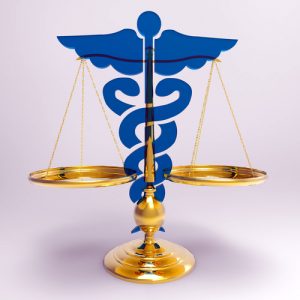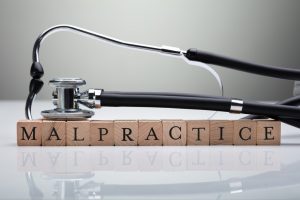In Legal Nurse Consulting, the idea of the standard of care is critically important. This standard is the defining linear line between negligence and proper care of a provider to a patient. It provides the guidelines necessary to understand if a malpractice has occurred or not occurred. Legal Nurse Consultants play a key role in defining this line within the practice of nursing and healthcare. It is hence extremely important to understand this standard and its applications in cases where supposed malpractice may have occurred.
The article, “Standard Of Care: Legal Definition & Examples” by Christy Bieber and reviewed by Adam Ramirez looks more closer at these standards. In the article, the definition of standard of care is clearly stated and how it applies to cases of potential malpractice. The article also reviews what type of compensation individuals can receive in a malpractice case and how to proceed in such a filing. The article states,
“In many cases, it is necessary to consult with experts in order to determine if a defendant fell below the standard of care. For example, if you are pursuing a case against a doctor for medical malpractice, you might need to present testimony from other medical professionals to establish what the standard of care was and to explain how the doctor fell short of fulfilling this duty and thus caused harm. An experienced medical malpractice lawyer can provide insight into proving a case. Your attorney can also help you to gather evidence and find expert witnesses who can testify on your behalf.”
“Standard Of Care: Legal Definition & Examples”. Christy Bieber. Forbes Advisor. October 10th, 2022. To access the full article, click here

Commentary
Legal nurse consulting (LNC) is a nursing specialty that provides support to lawyers and other legal professionals on cases involving health care. LNCs use their clinical knowledge and experience to help identify potential legal issues, gather and analyze medical records, and provide expert testimony. Legal nurse consultants work with attorneys and other legal professionals to provide expert analysis and testimony on a variety of legal issues, including medical negligence, personal injury, and long-term care. As a legal nurse consultant, you will use your knowledge of the healthcare system to help attorneys understand complex medical issues.
The Standard of Care
In the legal profession, the standard of care is the watchword for determining whether a healthcare professional has acted properly. The standard of care is defined as the degree of care and skill that a reasonable healthcare professional would use in similar circumstances. This duty of care is owed to all clients, regardless of their level of sophistication or ability to pay. In general, the standard of care requires that a person must be reasonably careful in order to avoid harming others.
The standard of care is the legal duty of all health care professionals to provide their patients with a certain level of care. This duty is based on the professional’s knowledge, skill, and judgment. The standard of care must be met in order to avoid liability for negligence. There are four elements to the standard of care: 1) the duty to act; 2) the standard of care; 3) causation; and 4) damages.
Malpractice
Medical malpractice is a type of negligence that occurs when a health care professional provides substandard care to a patient, resulting in injury or death. Although the standard of care varies by jurisdiction, it is generally defined as the type and level of care that a reasonably prudent health care professional would provide under similar circumstances. When a health care professional deviates from the standard of care and causes harm to a patient, he or she may be held liable for medical malpractice.
When filing a medical malpractice claim, there are a few things to keep in mind. First, you’ll need to file a complaint with the appropriate state agency. In most states, this is the Board of Medicine. You’ll also need to obtain copies of your medical records and any other relevant documentation. Once you have all of this information, you’ll need to meet with an experienced medical malpractice attorney to discuss your case.
Role of the Legal Nurse in Malpractice case
In a malpractice case, the legal nurse may be asked to review medical records and other documentation to help determine whether there was negligence on the part of the medical care provider. The legal nurse may also be asked to provide testimony in court about the case. Overall and in more detail, a legal nurse reviews medical records, researches medical conditions and procedures, and provides guidance on the standard of care. In addition, they may interview witnesses, collect and organize evidence, and assist with trial preparation. The goal is to help the attorney build a strong case on behalf of the client. Legal Nurses may represent the healthcare professional or the patient suing for malpractice.
Conclusion
In conclusion, legal nurses are an important part of the healthcare team and play a vital role in ensuring the standard of care is met. They work closely with attorneys and insurance companies to investigate cases of malpractice and negligence. The standard of care is important in protecting patients and ensuring that they receive the best possible treatment. It is also important in preventing medical negligence and malpractice.
Please also review AIHCP’s Legal Nurse Consulting Certification and see if it meets your academic and professional goals. The program is online and independent study and open to qualified nurses seeking a four year certification in Legal Nursing. After completing the required four courses, a registered nurse can apply for the four year certification.
Additional Resources
The Standard of Care. Donna Vanderpool, MBA, JD. Innov Clin Neurosci. 2021 Jul-Sep; 18(7-9): 50–51. Access here
Understanding Standard of Care for Patients. Trisha Torrey. VeryWellHealth March 4th, 2020. Access here
Medical malpractice. BASHIR MAMDANI. Indian Journal of Medical Ethics Vol I No 2 April–June 2004. Access here
An Introduction to Medical Malpractice in the United States. B. Sonny Bal, MD, MBA. Clin Orthop Relat Res. 2009 Feb; 467(2): 339–347. Access here










